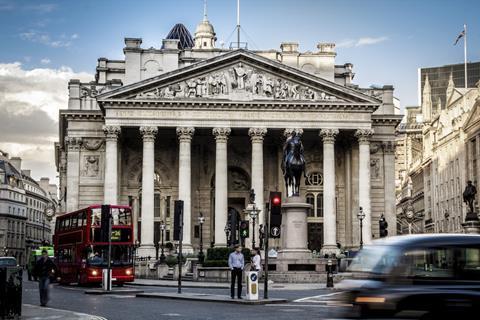High interest rates responsibile for low net mortgage lending figures in November
Mortgage approvals for house purchases rose 4.5% between October and November, from 47,900 to 50,100.
Despite the increase in approvals, the annual growth rate for net mortgage lending reached 0.3% in November, the lowest since the monthly records began in March 1994.

Bank of England data showed the total value of new mortgages issued to individuals was at net zero in November, meaning the amount of money lent in the form of new mortgages was offset by the amount of money repaid on existing mortgages.
During October, £0.1bn more was repaid on existing mortgages than was borrowed through new mortgages.
This marks a sharp contrast with borrowing levels in November 2022, when net borrowing of mortgage debt by individuals was at £4.4 bn.
There was also a rise in remortgaging approvals, with 24,000 approvals made for mortgages with a different lender in October, and 27,000 in November.
>> See also: Major lenders cut mortgage rates
>> See also: New mortgage commitments drop 41%, says FCA
Karen Noye, mortgage expert at wealth management company Quilter, said that the 0.3% annual growth rate for mortgage lending “will be largely down to higher interest rates, which have deterred potential buyers and subdued the property market”.
”However, as the year drew to a close, the mortgage and housing market began showing signs of recovery, thanks to a ‘price war’ among lenders,” she said.
”This competition has brought mortgage rates down below 4%, sparked in part by positive inflation figures and hopes for reduced interest rates in 2024 but also a serious lack of demand in the market”.
Noye added that given the rise of mortgage approvals for house prices, demand does seem to be returning.
”This indicates more people are looking to re-enter the market, which should help to buoy house prices which have been suffering as a result,” she said.
Tom Bill, head of UK residential research at Knight Frank, said: “The logic is simple: demand for mortgages has risen in recent weeks as rates have fallen. With inflation under 4% and money markets pricing in multiple rate cuts this year, we expect housing market activity to keep rising from a low base, which will put upwards pressure on prices.
”The election may cause some temporary hesitation among buyers and sellers but the economic convulsions of recent years appear to be increasingly behind us.”
Simon Gammon, managing partner, Knight Frank Finance, said: “The fall in mortgage rates since late July has stabilised the market and underpinned a moderate recovery in purchasing activity.
”That said, activity is still well below long run averages and likely won’t recover fully until mortgage rates fall further and wage growth improves affordability.
“The good news is mortgage rates are now falling quite quickly. Lenders have new targets at the start of the year and are locked in a battle for market share in a sluggish market.
”If official figures due for publication this month provide further evidence that inflation is beaten, we’d expect to see a much busier spring than last year, with the best two year fixed rate products likely available below 4.3%.”










No comments yet